Museo Matris Domini
The Museo Matris Domini is housed in the oldest section of the Dominican convent of the same name, situated in the city centre of Bergamo, Italy. It is administered by the nuns of the foundation.
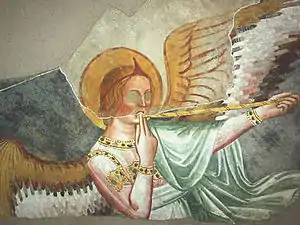
The museum preserves a series of 13th and 14th Century frescoes which were uncovered in a 1973 restoration of what was thought to have been the old refectory and a small church within the monastery. The reappearance of these paintings was highly significant as they are amongst the earliest surviving examples of wall painting in the province of Bergamo and indeed in Lombardy as a whole.
Outstanding for their pictorial and emotion qualities are fragments from what must have been a depiction of the Last Judgment: the Just, the Blessed, two Angels with trumpets (which are of particular beauty), Saint Peter Enthroned, and Hell, all attributed to the Master of the Tree of Life.
There is another series of frescoes of great emotive and narrative quality, representing Jesus among the Doctors, the Baptism, the Virgin and Child Enthroned, Saint Catherine of Alexandria upon the Wheel, Saint Martin and the Pauper, Jesus entering Jerusalem, and the Miracle of the reanimation of Napoleone Orsini by Saint Dominic, showing the young man falling from his horse. These works, together with the Visitation, have been attributed to the so-called First Master of Abbey of Chiaravalle, an anonymous artist active in Lombardy circa 1320-30, and known only through these works, as well as frescoes in San Marco, Milan and in the eponymous Abbey of Chiaravalle.
The Visitation is a particularly striking image because of its freshness and for the expressiveness of the faces of the Virgin and Saint Elizabeth, painted by the Master with great intelligence and sensitivity. A 16th-century fresco depicting Saint Dominic (the patron of the monastery) with other saints is also featured in the museum.
The stained glass windows
The Museum also has a group of beautiful polychrome glass windows, oculi, dating from the 14th century and originally from the apse of the sanctuary.
Amongst the five windows, the largest is one depicting the Virgin with the Infant Child.
Gallery
 Matris Domini
Matris Domini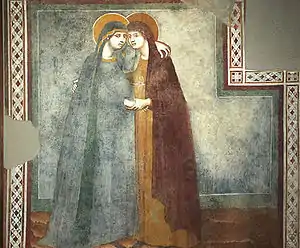 Matris Domini
Matris Domini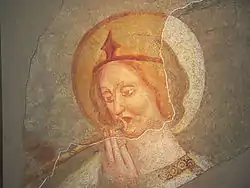 Matris Domini
Matris Domini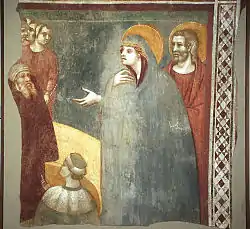 Matris Domini
Matris Domini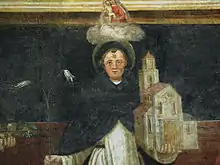 Matris Domini
Matris Domini Matris Domini
Matris Domini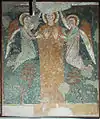 Matris Domini
Matris Domini Matris Domini
Matris Domini Matris Domini
Matris Domini Matris Domini
Matris Domini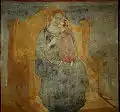 Madonna in Trono
Madonna in Trono Maddalena
Maddalena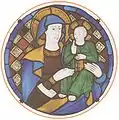 Matris Domini
Matris Domini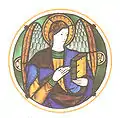 Matris Domini
Matris Domini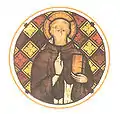 Matris Domini
Matris Domini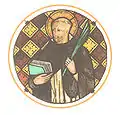 Matris Domini
Matris Domini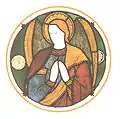 Matris Domini
Matris Domini